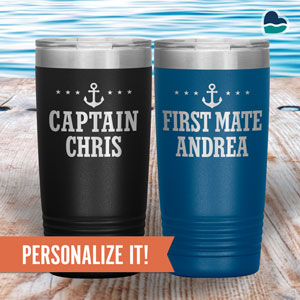Lake Kariba, Zambia & Zimbabwe
The mighty Zambezi River is the source of Lake Kariba, which spans an impressive 1.38 million acres in the southern African nations of Zimbabwe and Zambia. Hydroelectricity produced by Kariba Dam is used by both countries, while the vastness of the lake provides support for commercial fishing, tourism and wildlife preservation. The Zambezi River dates back thousands of years and it is believed that even Hiram, Solomon…
Keep scrolling to read more.
Welcome to the ultimate guide to Lake Kariba! Article topics include:
- All About Lake Kariba
- Where to Stay
- Vacation Planning Tools
- Things to Do
- Known Fish Species
- Lake Kariba Map
- Statistics / Weather / Helpful Links
- Lake Kariba Gifts
Looking for Lake Kariba cabins or other accommodations? Save time and use this interactive map to find, compare and book at the best rates. Or explore more of our favorite travel partners.
This post contains affiliate links. If you click and purchase, we may earn a small referral fee at no extra cost to you. Read our full disclosure.
Explore Area Hotels
Nearby offer more hotel accommodations:
All About Lake Kariba, Zambia / Zimbabwe
The mighty Zambezi River is the source of Lake Kariba, which spans an impressive 1.38 million acres in the southern African nations of Zimbabwe and Zambia. Hydroelectricity produced by Kariba Dam is used by both countries, while the vastness of the lake provides support for commercial fishing, tourism and wildlife preservation.
The Zambezi River dates back thousands of years and it is believed that even Hiram, Solomon and Queen Sheba benefited from the natural wealth taken from the area. The history of the Zambezi River is clouded in mystery, but it is known that the Tonga tribesmen made their homes along the banks of this mighty river. Construction of the Kariba Dam in 1955 along a narrow point on the Zambezi River known as the “Kariwa” (translated as the “trap”) uprooted the Tonga tribe. The tribesmen cried out to their Zambezi River God, Nyaminyami, to unleash his wrath upon those building the dam. At first it looked like the Tonga people would have their way due to torrential flooding, collapse of the suspension bridge, swamping of the dam’s foundation, and loss of lives. However, despite all of the obstacles, Lake Kariba was officially opened in 1960 by a ceremony hosted by the Queen Mother.
In the midst of Lake Kariba’s construction, national attention was diverted to the biggest wildlife rescue missions since the days of Noah, hence the name Operation Noah. Rupert Fothergill led his team to rescue the animals endangered by the rising waters of Lake Kariba. Due to the extraordinary rescue efforts, Fothergill Island in the national park was named after Operation Noah’s leader. Over 6,000 animals, including rhino, lion, leopard, elephant, zebra, warthog, birds and snakes were relocated to Matusadona National Park and other areas surrounding the lake.
Early planning when the dam was created resulted in a large amount of nature reserve land, particularly along the Zimbabwe south shore. Matusadona National Park encompasses 370,658 acres, with more than 60% accessible only on foot. The park is home to elephants, buffalo, impala, duiker, waterbuck, klispringer, gemsbok, zebra and other unique animals. Crocodiles, cormorants, fish eagles and other water birds enjoy the shallows. Lake Kariba is home to more than 370 bird species. Wildlife viewing is especially rewarding during the dry season from May to October as more animals appear near the most convenient permanent water source. Organized safaris also visit nearby areas such as Chizara, Mana Pools and Siavonga, Zambia where the wealth of animals in their native habitat continues. Many of the safari companies own comfortable camps with private quarters, hot and cold running water, great meals, and a variety of tour options for the convenience of their guests. Another way to see the lake’s rugged beauty is by taking a trip on one of the many houseboats, cruise ships, and sailing ships.
Fish were stocked in the lake soon after it formed, and Lake Kariba now supports over 40 varieties of fish. The most popular to sportsmen is the tiger fish, a native to the Zambezi River. The tiger fish often grows to over eight pounds and puts up a ferocious fight against the best of anglers. The Kariba Invitation Tiger Fish Tournament has been held every October for over 50 years, with hundreds of fishing teams competing for trophies and prizes for the best catch. Besides the formidable tiger fish, the lake supports bream, catfish, tilapia, labeo, vundu, jack and barbel as desirable fishing targets. Kapenta, or Tanganyika sardine, was stocked in the lake early to provide a food source for local people The kapenta have supported a large commercial fishery for many years, with the dried sardines being used locally and shipped to other areas. Recent declines in the catch have been caused by both over-fishing and predation by invasive crayfish. Efforts are underway to develop effective controls to overfishing and to get rid of the invasive species.
One of the most common side trips in the Lake Kariba area is an excursion to a nearby crocodile farm. Chirundu Fossil Forest in Zambia is another. Fossilized remnants of trees around 150,000,000 years old have been exposed by erosion here. Adventure firms offer such exciting fare as whitewater rafting, kayaking, bungee jumping and swimming in spectacular natural pools. The city of Kariba offers plentiful lodgings including resort hotels, fishing lodges, self-catering cottages, camp grounds and ecology camps. Several restaurants serve the tourist trade, and two casinos offer gambling. There are plenty of tourism businesses here seeking to offer customers every type of adventure and sightseeing. The easiest way to reach Lake Kariba is by road from Lusaka, a two-and-a-half-hour trip. An airport at Kariba serves the area. Another small airstrip near Siavonga is sometimes scheduled for use by tour operators. Because this is a rather remote area, first-time travelers may wish to schedule accommodations through a reputable tourism agency.
Lake Kariba is coming into its own as a tourism destination. Several hotels and resort properties have taken hold along the shoreline near the dam. The small city of Kariba near the dam was originally built to house construction workers and now is the largest city in the lake. Here, people who lived along the former river for generations share space with a new influx of tourists and visiting adventurers. Boating on the lake has started to become popular, with several hotels offering rental boats and pontoons for their guests’ convenience. A single car-ferry transports travelers the full length of the lake-a trip of 22 hours-to reach the fishing village of Mlibizi at the west end of the lake. The alternative is an eight-hour drive by car over rough roads. Rental houseboats are a favorite way for visitors to enjoy the lake’s many coves and bays, while canoe safaris along the Zambezi below the dam and guided wildlife tours are extremely popular.
Visitors of Lake Kariba may want to include a trip to Victoria Falls in their itinerary. Located on the mighty Zambezi River, Victoria Falls is considered one of the Natural Wonders of the World. Also included on the trip itinerary may be a stop at one of the local villages where visitors can enjoy the culture that makes the Kariba area so delightful. It is in one of these villages you may hear tales of the Zambezi River God, who still plans to unleash his wrath.
The savage beauty of Lake Kariba will captivate all who take time to see its wonders. Days filled with wildlife viewing, bird watching, fishing and learning about different cultures will keep visitors content with their choice of vacation destination.
Things to Do at Lake Kariba
These are some activities in the Lake Kariba, Zambia / Zimbabwe area visitors can enjoy:
- Vacation Rentals
- Fishing
- Boating
- Sailing
- Swimming
- Canoeing
- Kayaking
- Whitewater Rafting
- Camping
- Wildlife Viewing
- Birding
- National Park
- Casino Gambling
What Kind of Fish Are in Lake Kariba?
Lake Kariba has been known to have the following fish species:
- Barbel
- Catfish
- Tiger Fish
- Tilapia

Find Places to Stay at Lake Kariba
If you’re considering a Lake Kariba lake house rental or hotel, we’ve made it super easy to find the best rates and compare vacation accommodations at a glance. Save time using this interactive map below.
Note: These are affiliate links and we may earn a small commission if you click and make a purchase. Read our full disclosure policy here.
More Sites to Book a Lake Kariba Vacation
Our interactive Lake Kariba lodging map above is an easy tool for comparing VRBO rental homes and nearby hotels with Booking.com, but there could be times when you need to expand your search for different types of accommodations. Here are some other lake lodging partners we recommend:
Lake Kariba Statistics & Helpful Links

Lake Type: Artificial Reservoir, Dammed
Water Level Control: Zambezi River Authority
Surface Area: 1,378,850 acres
Shoreline Length: 1,345 miles
Normal Elevation (Full Pond): 1,591 feet
Average Depth: 95 feet
Maximum Depth: 318 feet
Water Volume: 149,981,939 acre-feet
Completion Year: 1960
Drainage Area: 314,673 sq. miles
More local lakes to explore in this area:
We strive to keep information on LakeLubbers as accurate as possible. If you’ve found something here that needs updating, please touch base by filling out our Content Correction form.
Shop Lake Kariba Gifts
More Lake Kariba news from LakeLubbers.com
- Advertise your vacation rental property or local business: DETAILS HERE
- The Lake Kariba forum has been discontinued: HERE’S WHY
- New Lake Kariba photos coming soon!
- You’re invited to join our lake-lovin’ community on Facebook and Instagram!
- Share this Lake Kariba article with your fellow LakeLubbers:



